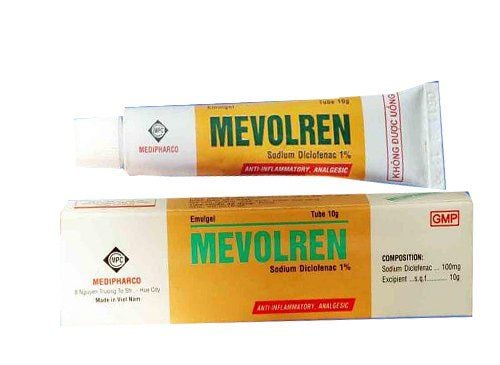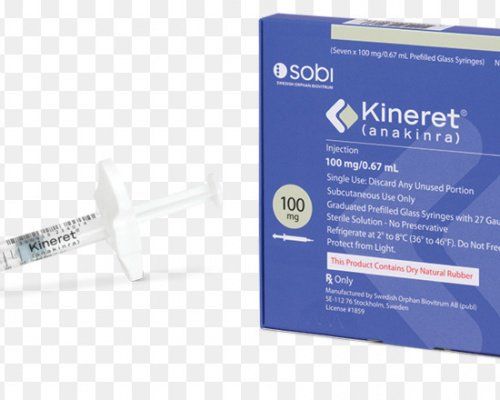This is an automatically translated article.
Zipsor is a non-steroidal anti-inflammatory drug, indicated for the treatment of muscle pain, back pain, toothache, menstrual pain, arthritis, and sports injuries in adults and children 12 years of age and older. up. So what are the uses, doses and precautions when using Zipsor?1. What is Zipsor?
Zipsor is a non-steroidal anti-inflammatory drug (NSAID) whose active ingredient is Diclofenac 25mg. Zipsor capsules are used to treat mild to moderate acute pain in adults and pediatric patients 12 years of age and older. Zipsor is indicated in the treatment of muscle pain, back pain, toothache, menstrual pain, arthritis and sports injuries. Zipsor is contraindicated in patients with known hypersensitivity to Diclofenac, bovine protein or any component of the formulation; patients with a history of asthma, urticaria or other allergic-type reactions after taking Aspirin or other non-steroidal anti-inflammatory drugs; before or after coronary artery bypass graft surgery.2. Dosage and usage of Zipsor
2.1. How to use
Take Zipsor with a full glass of water unless your doctor directs you otherwise. Do not lie down for at least 10 minutes after taking the medicine. To prevent stomach upset, take this medication with food, milk, or an antacid.2.2. Dosage
Zipsor dosage is based on the patient's medical condition and response to treatment. To minimize the risk of side effects, only the lowest effective dose should be used for the shortest possible time. Do not increase your dose or take it more often than prescribed. For chronic conditions such as arthritis, patients need to take them as directed by their doctor and have regular follow-up visits. Here are the recommended Zipsor doses for adults and children:Dosage for pain relief in adults: Take 25mg/time, 4 times a day Usual dose for children 12 years of age and older for pain relief: Recommended 25 mg, 4 times a day
3. Side effects of Zipsor
Side effects of Zipsor may include:Indigestion, bloating, nausea, vomiting, stomach pain, diarrhea, constipation Headache, dizziness, drowsiness, ringing in the ears, blurred vision Itching, vomiting sweating, nasal congestion, sinusitis, increased blood pressure Swelling or pain in arms or legs Increased serum creatinine, abnormal kidney function Cardiac arrhythmias, heart failure, flushing, hypotension, palpitations, syncope , vasculitis Alopecia, dark spots, erythema multiforme, exfoliative dermatitis, photosensitivity, Stevens-Johnson syndrome, toxic epidermal necrolysis, urticaria Hyperglycemia, weight changes Cystitis X-ray, dysuria, hematuria, oliguria, proteinuria Agranulocytosis, aplastic anemia, hemolytic anemia, lymphadenopathy, purpura, rectal bleeding, thrombocytopenia Fulminant hepatitis , liver failure, liver necrosis, hepatitis, jaundice Anaphylactic shock, angioedema, asthenia Patients should seek medical care immediately if they have signs of an allergic reaction to Zipsor (rash, difficulty breathing). , swelling of the face or throat) or skin reaction severe (fever, sore throat, burning eyes, skin pain, erythema, blistering and peeling).
4. What are the precautions when using Zipsor?
Zipsor may increase your risk of cardiovascular disease, including stroke and heart attack. Events may appear early in the course of treatment and increase with duration of use. The lowest effective dose for the shortest duration should be used to reduce the risk of cardiovascular events and alternative therapies may be considered for high-risk patients. New-onset hypertension or exacerbations of hypertension may contribute to cardiovascular events. Therefore, blood pressure should be monitored and used with caution in hypertensive patients. Zipsor may cause an increased risk of serious gastrointestinal inflammation, ulceration, bleeding, and perforation. Therefore, elderly patients and patients with a history of peptic ulcer and/or gastrointestinal bleeding are at increased risk of serious gastrointestinal events. Zipsor may cause sodium and water retention. Therefore, caution should be exercised when administering the drug to patients with edema. Zipsor should not be used if you are allergic to Diclofenac or have had a severe allergic reaction after using aspirin or other nonsteroidal anti-inflammatory drugs. Do not use Zipsor if you are allergic to beef or beef protein. To make sure it's safe to take your medicine, tell your doctor if you have any medical conditions including: Heart disease, high blood pressure, asthma, liver or kidney disease, or smoke. Use of Zipsor may affect kidney function by reducing prostaglandin synthesis, reducing blood flow to the kidneys, possibly causing renal decompensation (which is usually reversible). Patients with impaired renal function, heart failure, liver failure, hypovolaemia, dehydration, those taking diuretics or ACE inhibitors, elderly patients at higher risk of nephrotoxicity . Diclofenac may affect ovulation and it may be more difficult for patients to get pregnant while using this medicine. Pregnant women: If you are pregnant, you should not use Zipsor unless your doctor tells you to. Using nonsteroidal anti-inflammatory drugs late in pregnancy can cause serious problems, such as premature closure of the ductus arteriosus. Lactation: Diclofenac is present in breast milk. The manufacturer recommends that the decision to breastfeed should weigh the risks and benefits of taking the drug. The use of NSAIDs in the mother should be avoided if the nursing infant has platelet dysfunction or thrombocytopenia.5. Drug interactions of Zipsor
Drug interactions can change how a drug works or increase the risk of side effects. It is best for patients to inform their doctor or pharmacist of all medications they are taking (including prescription/nonprescription drugs and herbal products). Here are some drug interactions to watch out for when using Zipsor:Some products that may interact with Zipsor include Aliskiren, ACE inhibitors (Captopril, Lisinopril), angiotensin II receptor blockers ( Losartan, Valsartan), Cidofovir, Lithium, Methotrexate, diuretics (Furosemide), corticosteroids (such as Prednisone). Zipsor may increase the risk of bleeding when taken with other medicines that can also cause bleeding, for example antiplatelet drugs such as clopidogrel, anticoagulants such as enoxaparin, dabigatran and warfarin. Check all prescription and nonprescription drug labels carefully as many medications may contain an active antipyretic analgesic (such as Aspirin, Celecoxib, Ibuprofen, or Ketorolac). These medicines have similar effects to Diclofenac and may increase the risk of side effects if taken together. However, if a doctor prescribes a low dose of aspirin to prevent a heart attack or stroke (usually 81-162 milligrams per day), the patient should continue to take aspirin unless otherwise directed by the doctor. Above is general information about Zipsor anti-inflammatory pain reliever. To ensure maximum effectiveness of the drug and minimize side effects, patients should consult their doctor or pharmacist before using the drug.
Please dial HOTLINE for more information or register for an appointment HERE. Download MyVinmec app to make appointments faster and to manage your bookings easily.













